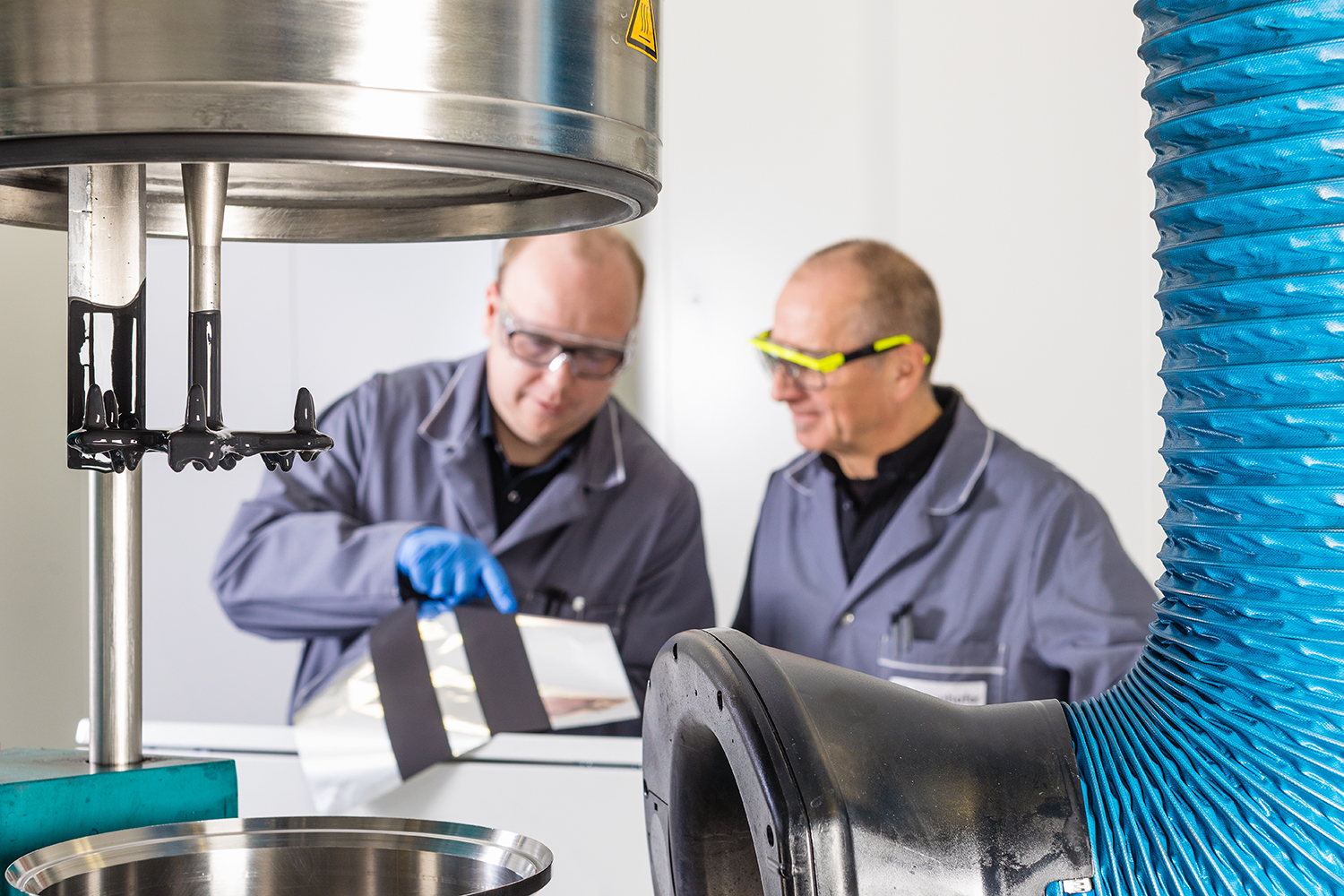Production technologies for low-cost and safe aluminum-ion batteries
In the BMBF joint project "BALU", a consortium of research institutions and specialized industrial companies is further developing the aluminum-graphite dual-ion battery (AGDIB). The project is pursuing the ambitious goal of transferring the production of AGDIB cells from laboratory scale to industry-compatible production conditions. Ecological considerations, such as the avoidance of critical raw materials, environmentally friendly production and subsequent recycling, play an explicit role in the transfer of the new battery technology. Fraunhofer IKTS is contributing its expertise in cell and process development.

![BMBF_CMYK_Gef_M [Konvertiert]](/en/press_media/press_releases/2024_3_27_n_production_technologies_for_low-cost_safe_aluminum-ion_batteries/jcr:content/fixedContent/pressArticleParsys/textwithinlinedimage/imageComponent2/image.img.jpg/1711543622509/BMBF-gefoerdert-2017-en.jpg)
Inexpensive, powerful, rechargeable batteries, without critical raw materials or flammable materials, easy to manufacture, safe to operate and easy to recycle after years of use - aluminum-graphite dual-ion batteries, AGDIB for short, could make this possible. With their high power density, AGDIBs are particularly suitable for highly dynamic load requirements in the field of stationary industrial (e.g. primary and secondary balancing energy) and mobile (e.g. buses, industrial trucks, crane systems) energy storage, where the cost-intensive lithium titanium oxide (LTO) technology has so far been state of the art. The decisive factor for such applications is the highest possible charging rate. Initial tests show that long-term stable operation at very high rates of over 30 C is possible. In addition, the AGDIB uses non-toxic, inexpensive and readily available materials.
The joint project "BALU - Production technology for battery cell concepts based on aluminum-ion technology" aims to further develop the AGDIB and transfer the production of AGDIB cells from laboratory scale to industry-compatible production conditions. The focus will be on economical roll-to-roll processes in order to produce large quantities of multi-layer pouch cells. The next step is to build complete battery modules, specify the operating behavior of the cells and define the parameters for the system design. Finally, the AGDIB high-performance modules will be integrated into industrial battery systems and will have to prove their quality in practical operation.
The research focus of Fraunhofer IKTS is on the development of recycling-friendly cell concepts for AGDIB technology using industry-relevant production technologies. Fraunhofer IKTS also realizes the demonstrator cells for the "proof of concept" of various AGDIB cell designs.
The project coordinator in the BALU project is Fraunhofer IISB. In addition to Fraunhofer IKTS, the Fraunhofer IST, the Chair of Systems Engineering for Electrical Energy Storage (SysEE) and the Chair of Electronics for Electrical Energy Storage (LEEE) at the University of Bayreuth, the Chair of Sustainable Manufacturing and Life Cycle Engineering at the Institute of Machine Tools and Production Technology (IWF) at TU Braunschweig, Sika Werke GmbH and Alzner Battery are also involved. The Federal Ministry of Education and Research (BMBF) is supporting the project over a period of three years as part of the "Battery2020 Transfer" program with around 2.9 million euros